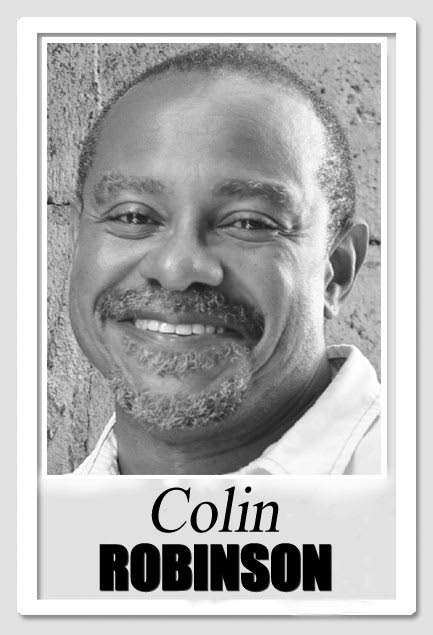Celebrating sisterhood & 60

Reading about and seeing pictures of the Caura Hospital in the news these days takes me back not to my mother’s cancer death in the hospice there five years ago, but the 1960s evenings I spent on the compound as her mother died of cancer.
“Mummy don’t cry | my nine-year-old big sister and I | chant in unison | from the darkness of the back seat | all the way down the Beetham |each night | after the after-school vigil | doing homework | in the waning light in the two-door car | parked beneath the window | outside the sanatorium.”
Most folks who meet my sister Charmaine or me through the other comment on our substantial similarities in face and voice. It’s become annoyingly predictable. Fewer remark, though still consistently, about what a new friend I brought around last year immediately termed the “friendship” between us. It’s the longest friendship of my life. One I struggled to celebrate this week.
Despite widespread evocation of “dystopia” by the spoken-word generation to language the current times, despite the enormous licks that unemployment is putting on people, despite the precarity that quarantine measures have added to spaces our politicians wistfully think of as “home,” it’s nonetheless a fact that, unlike many disasters, the novel coronavirus epidemic has kept most of the material structures of our world largely intact. Even as we feel its changes in our emotional and economic lives. Even as it disrupts critical social rituals, starting with the freedom of our bodies to express faith.
How we both mourn and celebrate are key things we are called to re-imagine.
The epidemic has already triggered a slew of bereavement-like responses for all of us, with the uncertainty, helplessness, pressure on domestic relationships, and need to accept difficult changes that it is imposing on our lives. The death of a loved one, whether from the virus or some other cause, is especially difficult to additionally suffer through under our current “social distancing” public health regime. The death of my godson’s grandfather this week has left his family with little sense of what to do.
The ways we know to deal with death involve elaborate public rituals through which we express mourning communally. They reassure us, provide meaning and structure for moving through our loss, and play a critical role in our family and emotional health. But covid19 has reduced funerals and their multi-day wakes to single, hasty, tiny events that are as painful for what they are not as for what they are.
Celebrations, similarly, are demanding reinvention. Including those that, like funerals, are once-in-a-lifetime.
A joint adventure to a new country, an outdoor cultural festival, wildlife, gastronomy, urban living. That was how I’d planned to party with my 60-year-old lifelong friend, my sister, this week. It was ambitious, but affordable, thanks to friends. But no amount of money or friends who would host us mattered. Our plans became more and more clearly irredeemable as the big day Tuesday approached, with the epidemic swirling all around it.
The most efficient way to deal with the disappointment was to kick the can down the road.We’d muster some celebration of this major life event when the respiratory horizon cleared.
But as her big birthday crept up, I felt suddenly powerless and empty-handed. I needed some small way to seize that specific day, to mark the measure of my gratitude for her friendship, especially across the journey of doctor’s visits and diagnoses and health research and travel of the past year.
Gratitude for the memories of a playful childhood, the imaginary characters like Pshweela and King Mejoh we created together, the folk songs we composed in our own language: “Tish kee doodle, tavel lavel dee.” Gratitude that we still find company and conversation and pride and caring in each other. Gratitude that we share interests, especially around Carnival, that we find no one else in our networks does.
The fortune to have friendships within family is precious. They are so easily lost to such small missteps.
I’m grateful that she and I have the maturity and independence and – yes – serenity to be generous and thoughtful with each other. Grateful that we can depend on each other. And grateful that we have people in our lives to remind us of and reflect our friendship back to us.
I didn’t come up with much on Tuesday. No creative innovations for covid-era ritual.
But I remembered the friend who’d reconnected and visited after my surgery with custom-baked gifts that so impressed us. Like so many other gay friends, he’d instantly hit it off with her. I called him up. He baked more cake than we could eat. Cake neither of us should be eating.
A small sweet surprise for my sister’s 60th.


Comments
"Celebrating sisterhood & 60"